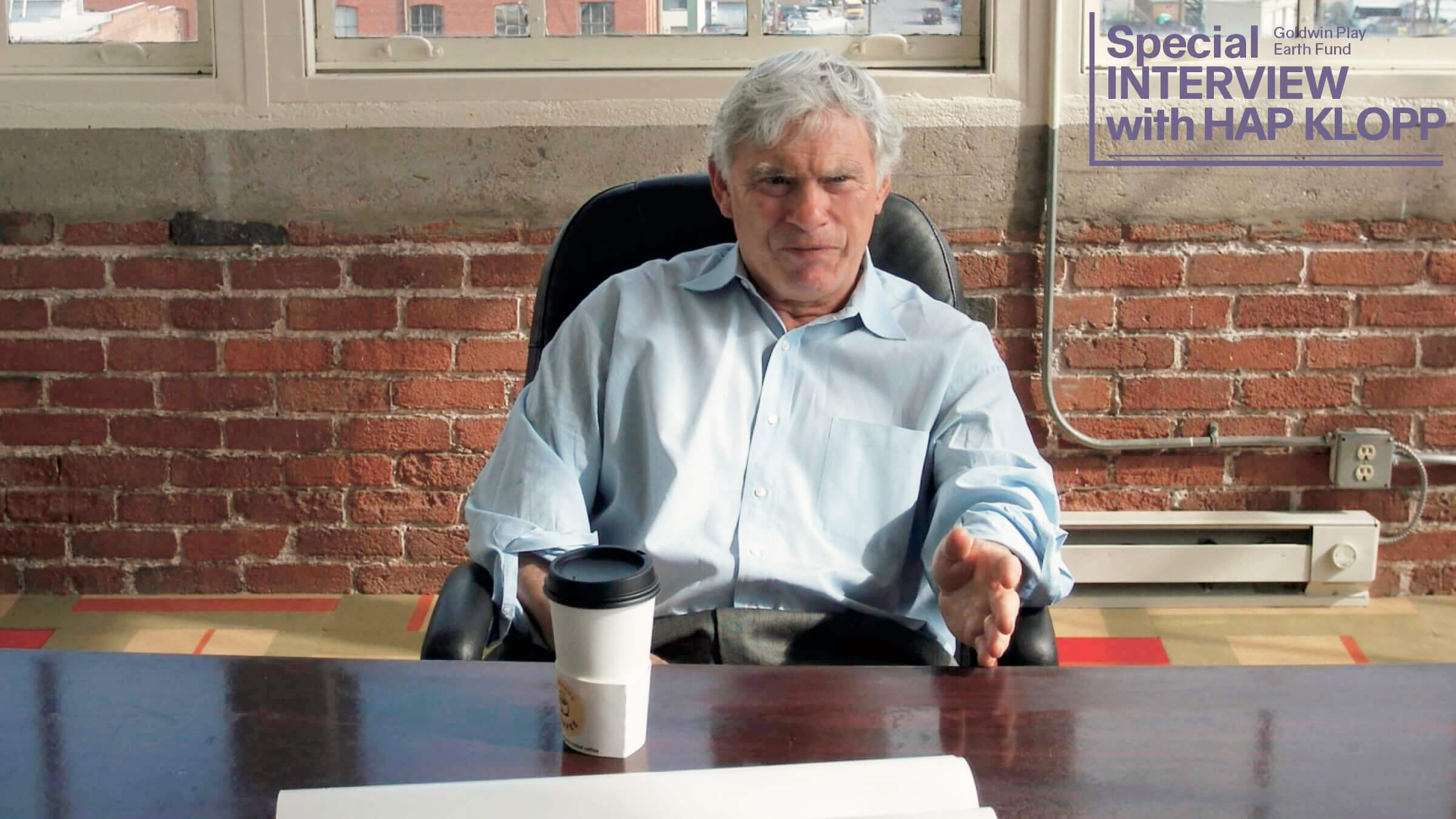
Goldwin Play Earth Fund
Special interview with Kenneth Hap Klopp
As an investor, how does he view Goldwin's stance and the Goldwin Play Earth Fund, with which he regularly exchanges information? Here, we record Happ's candid thoughts shared during an online interview.
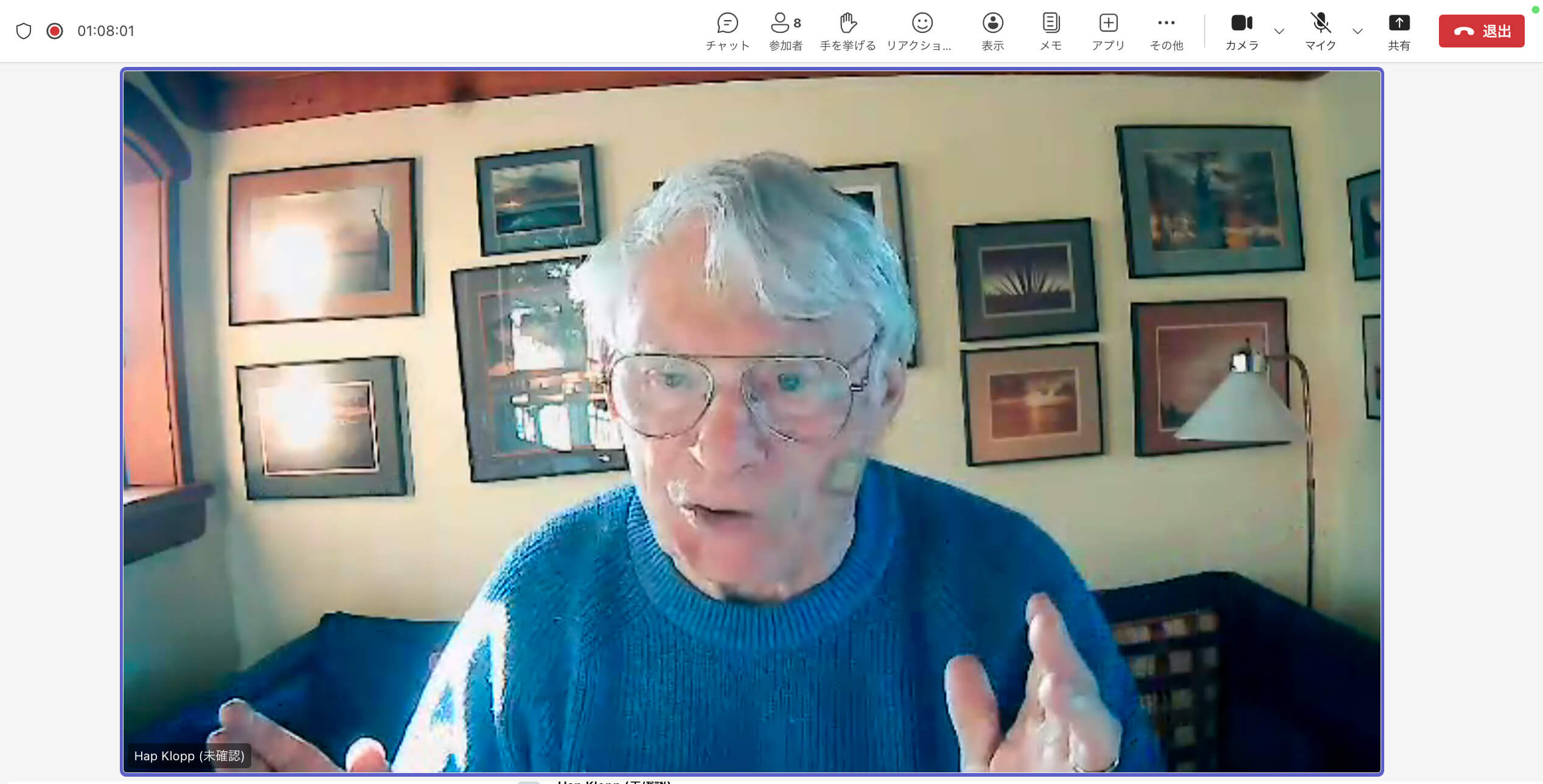
Equality, Sustainability, and Inclusivity Have Always Been Core Values Since the Beginning.
— To start, could you tell us about your career?
Hap:My career started when I acquired The North Face, a ski shop founded by Douglas Tompkins. At the time, it was a small store with annual sales of about $300,000, and it didn’t have its own products. However, I saw great potential in the outdoor market. From there, we worked on developing our own products, expanding the store, and rebuilding the brand based on the philosophy of "guiding people deep into nature." By fostering a connection with nature, we aimed to raise awareness about the environment and provide unforgettable outdoor experiences. At the time, this idea seemed radical, but over the years, it has resonated with many people.
— THE NORTH FACE has produced many iconic products. Could you share the philosophy behind creating these products?
Hap:I believe philosophy and products are inseparable. Products express our values and create an emotional connection with our customers. When a customer wears a product, it should make them feel like they are part of the world. That creates differentiation in the market and captures customers' hearts for reasons beyond price or design.
— Were there any brands or companies that inspired you during your time at THE NORTH FACE?
Hap:After a while, Patagonia emerged with its wonderful philosophy, especially its environmental consciousness. Helly Hansen was also remarkable. However, The North Face, unlike others, embraced the philosophy of “doing good and protecting nature.” At the time, this idea was considered crazy by investors, but I wanted the company to have a positive impact on the market. Ultimately, that thought resonated with customers, and the market expanded more than I initially imagined.
— What do you think are the key characteristics of a good brand?
Hap: A brand that stays true to its philosophy. Carhartt is a perfect example of this. While continuing to make authentic workwear, they’ve also carefully managed their fashion line. Helly Hansen, L.L. Bean, Filson, Red Wing, and others are also great examples. I’m also interested in newer brands like Cotopaxi and Hoka.
— Thank you. You were the CEO of THE NORTH FACE until 1988. After that, what did you focus on?
Hap:I’ve mainly focused on three areas. First, through my company, HK Consulting, I’ve been advising on strategy, branding, and fundraising for venture businesses. Second, I’ve been teaching topics like innovation, entrepreneurship, ESG (environmental, social, governance), and circularity at universities. Third, I’ve actively invested in innovative businesses.
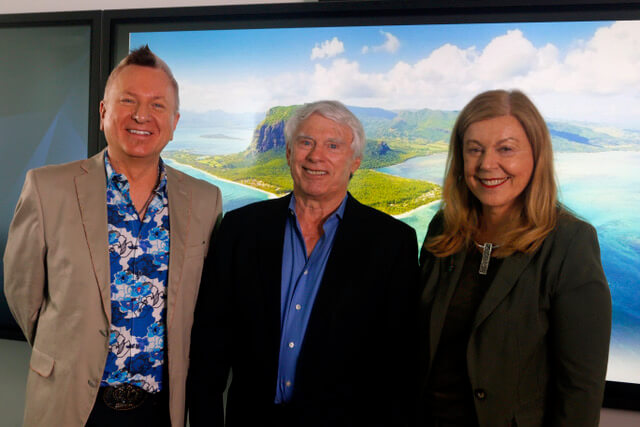
— Why are you focusing on investments?
Hap:Many investors focus on unique technologies or large corporations, so there is a lack of investment in outdoor startups or those focused on SDGs. By supporting these companies, I can create value beyond just providing funds and guide them to success. The sense of fulfillment in this is incomparable.
— Have you always been interested in these fields?
Hap:Of course. When I started THE NORTH FACE, I had just completed my MBA at Stanford University. From that time, I was interested in themes like equality, sustainability, and inclusivity. I made sure to achieve equal pay for women and hired globally without bias. Since I spent a lot of time outdoors as a young person, it was natural for me to connect these values with my business.
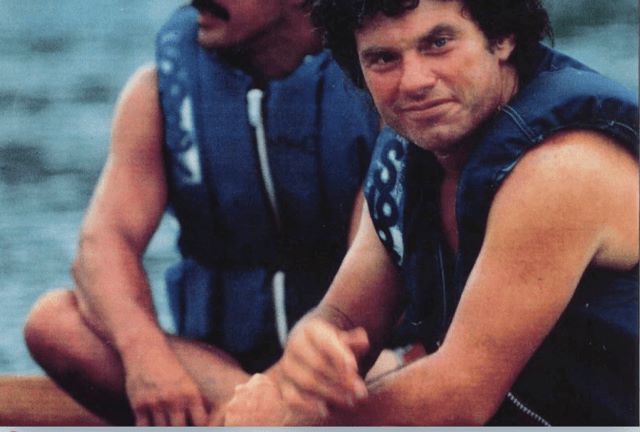
Innovation is Essentially Chaotic.
— Could you tell us about your main investments today?
Hap:I focus on ESG-driven businesses and innovative industries. Specifically, these include companies based in Santiago that develop leather alternatives and textile products made from mycelium, a Dubai-based company that is democratizing healthcare through genetic testing, IV therapy, and health solutions, and an Australian fitness company that develops unique fitness methods, innovative equipment, and apparel.
— How many companies have you invested in over the course of your career?
Hap:I don't remember the exact number, but I think it's around 35. Many of them have already been sold or moved to the next stage. For example, I was involved with a company that sold CBD-infused water, and they are now independent and very successful. I usually get involved through strategic support, and once they become self-sufficient, I step back.
— When investing, what aspects of a company do you focus on?
Hap:It’s very simple. The most important thing is “people.” If I can’t empathize with the people in the company, there’s no reason to invest. The next key points are whether I can contribute to that field and whether I can be genuinely interested. ESG is always top of mind, particularly in outdoor, apparel, and textile-related ESG.
— When you say "people," are you referring to the people in the company, the customers, or all stakeholders?
Hap:Good question. All of them, but mainly the people in the company. I want to know if I can trust them and share a positive vision. I would never partner with someone whose approach I fundamentally disagree with. Outside the company, I also pay attention to the psychological aspects of the market, such as how people think and what values they have. I look beyond just demographics like age or gender; I focus on psychological traits.
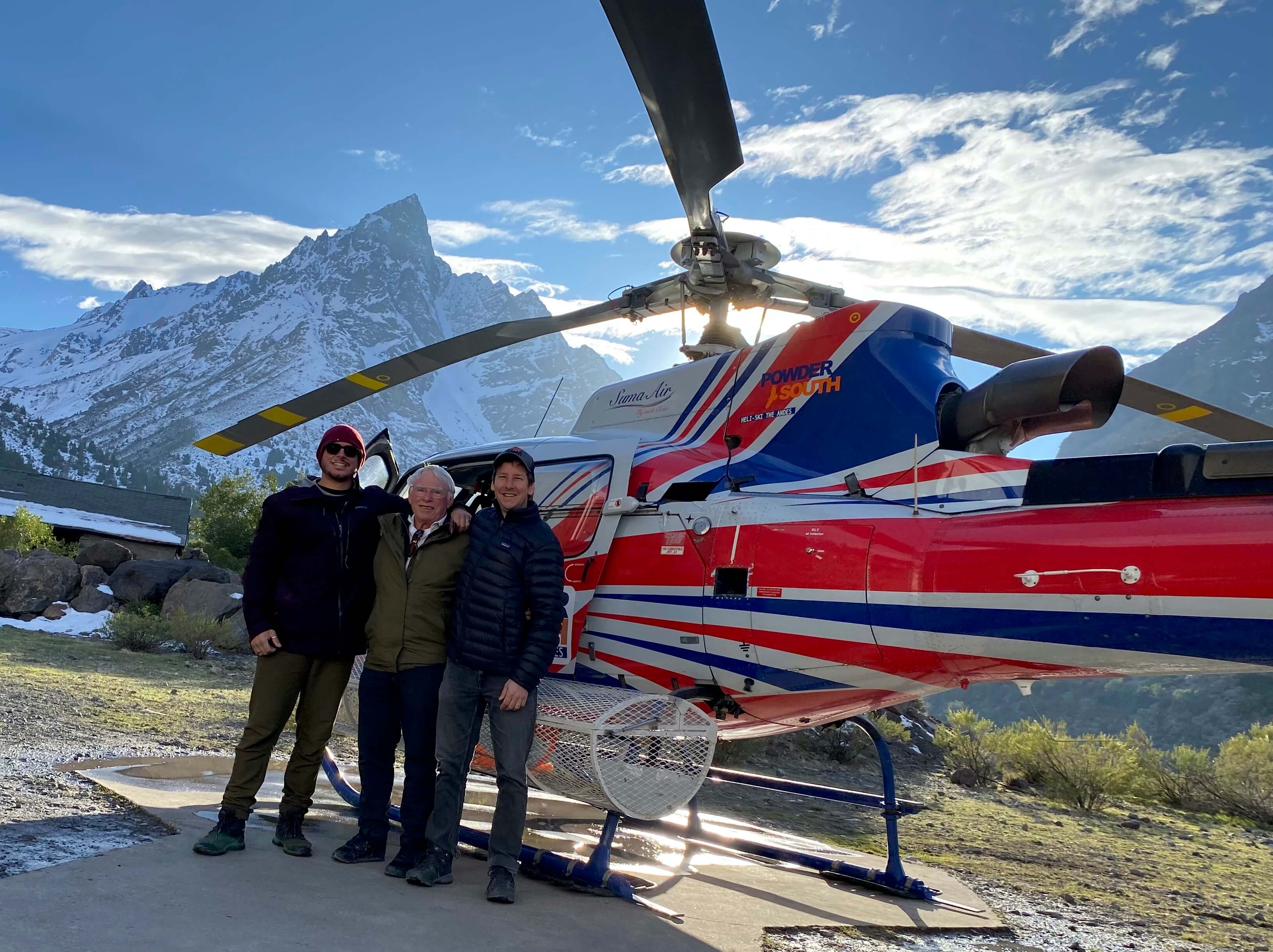
— How do you view Goldwin as a company?
Hap:I have deep respect for Goldwin. It’s a company with values and philosophies that align with my own. Furthermore, Goldwin has done an excellent job adapting to the Japanese market while staying true to the core principles of The North Face. Designing unique products that meet local needs while maintaining the brand’s spirit is a great example to follow.
— Could you provide your objective opinion on the long-term vision "PLAY EARTH 2030" announced by Goldwin in 2021?
Hap:This initiative beautifully aligns with "We Play Different," the theme that THE NORTH FACE is promoting this season. "PLAY EARTH 2030" isn't just about selling products; it's focused on offering transformative experiences in nature. It encourages the protection of the Earth and aims to inspire people with positive energy. From Goldwin's forward-thinking approach, you can also sense a strong commitment from the company.
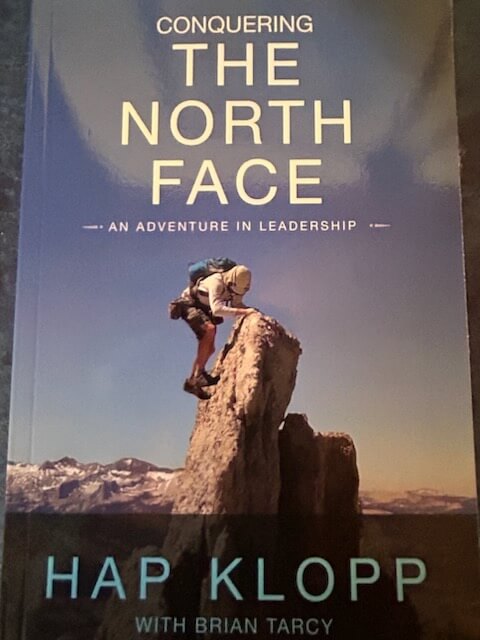
— How do you view the activities of Goldwin Play Earth Fund, which focuses on "Apparel," "Future (Children)," and "Nature"?
Hap:We have been in close communication with the "Goldwin Play Earth Fund." In 2024, we made a joint investment in a U.S. startup focused on developing the lightest insulation material on Earth.
People’s focus is shifting from just price and value to broader perspectives like environmental impact and social responsibility. The younger generations, like Gen Z and Gen Alpha, are deeply concerned about the future of the planet. In this context, Goldwin Play Earth Fund’s focus on children and nature is about nurturing a generation that values sustainability and long-term vision, creating a foundation to protect the planet’s health for decades to come.
— What significance do you think it has for a company like Goldwin to launch a corporate venture capital (CVC) fund?
Hap: Large companies like Goldwin are always focused on efficiency, but innovation is inherently chaotic. It’s hard for structured corporations to foster innovation. However, by using CVC, they can invest in innovation without impacting their core business. There is a risk of failure, but valuable lessons can be learned from failure. These efforts stimulate new ideas and can ultimately benefit the parent company. However, it’s important that these innovations are not solely driven by the parent company’s needs. Sometimes, unexpected opportunities can arise in unforeseen places.
Recklessness is Genius, Power, and Magic.
— You mentioned that "you can learn valuable lessons from failure." How have you dealt with your own failures and turned them into success?
Hap:My experiences in the early days of Silicon Valley shaped my current mindset. I came to see failure not as something to avoid but as an opportunity to learn. Failure gives you a chance to reflect and improve.
Another key philosophy I hold is Jeff Bezos’ "Two Pizza Rule." It’s the idea of keeping teams small and agile. Start small, take calculated risks, and be ready to pivot. With this mindset, you can set big goals without fear. Failure isn’t the end; it’s the next step forward.
— What efforts do you think society needs to make to lead the planet in a better direction?
Hap:Since founding The North Face, I’ve believed in Henry David Thoreau’s words, “In wildness is the preservation of the world.” If people connect with nature, they can become guardians of the planet. In that sense, initiatives like Goldwin’s Play Earth 2030 are incredibly important. Education is important, but more than that, direct experience with nature is what truly teaches people. By experiencing it, they’ll develop a desire to protect it.
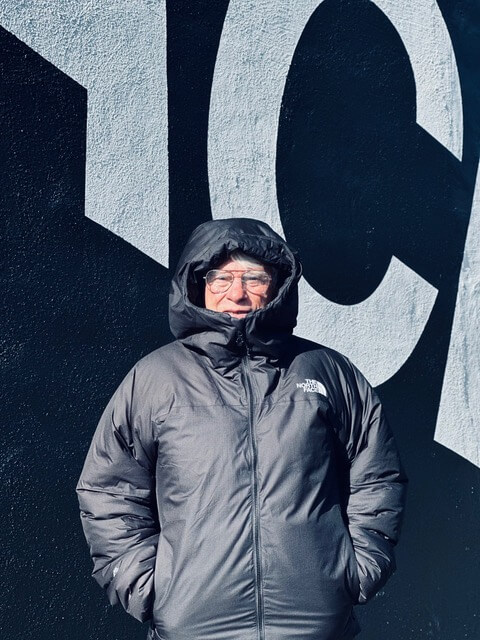
*All photos have been provided by Mr. Hap Krop himself.
Text_Keisuke Kimura
Edit_Hideki Shibayama(HOUYHNHNM)

